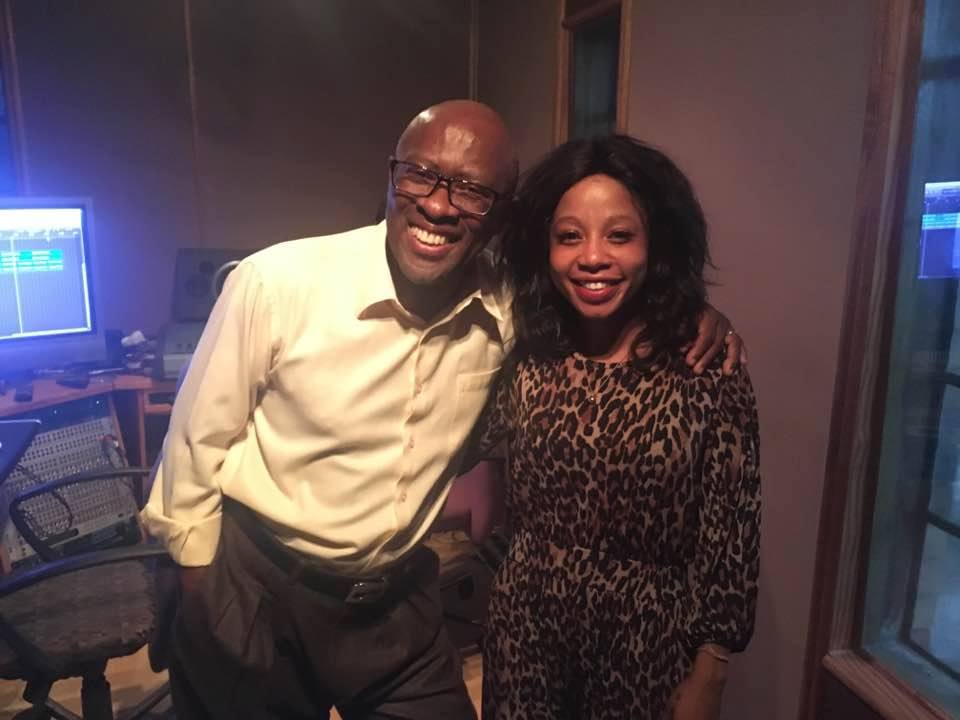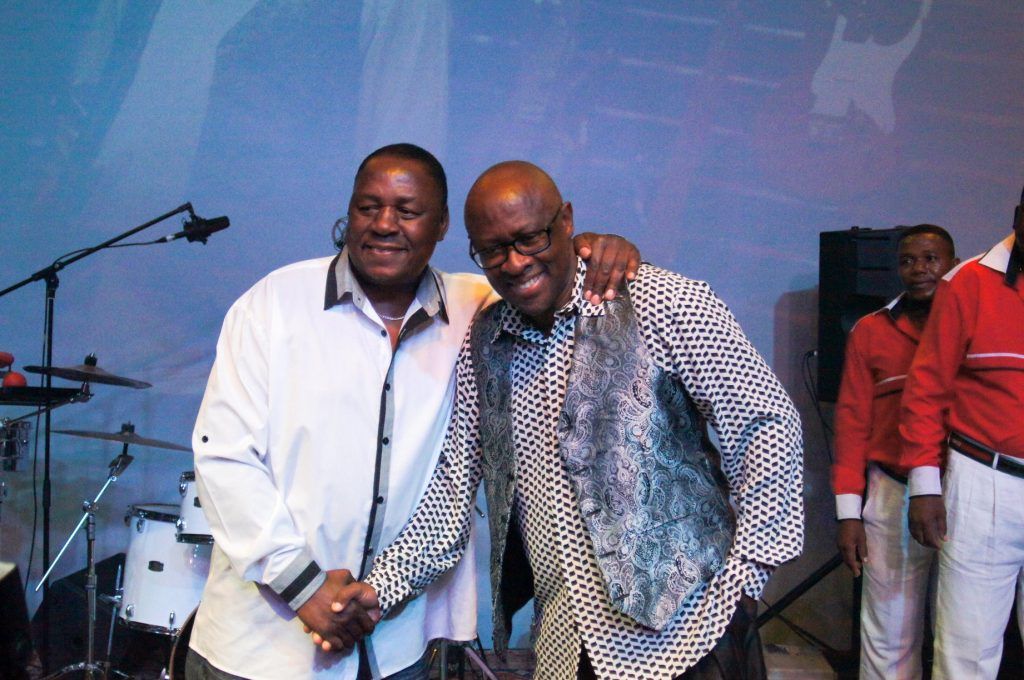ARYAN KAGANOF
An interview with Don Laka: Monday 10 February 2003
DON LAKA: I was born some 45 years ago in a township called Mamelodi near Pretoria. I grew up listening to jazz and I had a family that was musical, a very religious family. I’m the son of a priest. At some stage in the family we had about ten priests, my uncles and everyone in the family was priests. So I grew up listening to gospel music, jazz, because everyone in Pretoria which is still known as the home of jazz up to today, so it was easy for me to digest that. Growing up playing guitar and other instruments, like bass and piano, drums, harmonica, saxophone, on which I’m self-taught. Obviously living in South Africa in the sixties and seventies was not as easy as we have it today after we have democracy. It was difficult for any young black musician to get proper education in music. I was denied an entry into studying at the Pretoria Conservatory of Music but that didn’t deter me from pursuing my studies. I’m self-taught. I wrote my grades up to a diploma level in high school music teaching and I joined a band called Flood in the seventies which became very popular in South Africa, we sold about 600 000 singles at that time. I don’t think anyone has broken that record to this day. I worked with many bands until 1980 when I met up with Sipho Gumede and Kaya Mahlangu and we formed Sakhile. I was with the group for about a year and a half, left the group and joined Alec Kgaoli who was just split with Sipho Mabuse from the popular Harare, and we formed the group called Umoja, and that’s where I met Sello Twala, known by the name Chicco today, and I was with the group for about a year, left the group and started a group that we would be with for about ten years called Image. We had very popular records there that we produced in the eighties. I was with that group for about ten years, but in that time I was working with the likes of Ray Phiri, producing almost everyone in the country, from Ladysmith Black Mambazo to Johnny Clegg’s Juluka, Mango Groove, all the top South African musicians.

Late eighties in South Africa the industry just went into a slump and I went overseas and lived in Germany for about a year and a half, came back, started a company with some deejays, Oscar and Christos. The reason why that company was started was because of frustration. When I came back the record companies wouldn’t give me a record contract. They considered my age, he’s a bit too old, and the industry was not even doing well. I decided from that day I won’t look for any record contract, I’m going to sign myself and sign other people. That’s how we started Kalawa Records. When we started that there wasn’t any significant independent record label in the country. The challenges were, we had to start this record label, distribute ourselves, market ourselves, do promotions, do everything. I was fortunate because I kept saving my money and I had instruments but I didn’t have the money to start the recod label so Oscar had about R2000, that’s how we started Kalawa.

The first record that we did which was very instrumental and innovative and no one thought it would do anything because it was new music, no one knew what it was called actually, we didn’t have a name for that type of music. I was just playing all the instruments and playing, this will work in a club, to a groove and working with deejays, they would say, nah, this won’t work in a club that’s how the music called kwaito first started.
I was the first person to play that type of music, with the three deejays, we were the first people to come up with that music. The second album that we did with a group called Boom Shaka which became the most popular group in the country. We saw the rise of the guys like Arthur following suit, we saw M’du, we saw everyone coming in. The company grew from strength to strength and since then we’ve been selling no less than 800 000 to a million records a year. The company became very successful, we were producing new signed acts, we just get people who have never been musicians and turn them into stars. Bongo Maffin, Mafikizolo now which just had a huge record over the festive season.
DON LAKA: In the mid nineties I decided to do a solo album as Don Laka. I didn’t follow the commercial route, as almost everyone predicted that I would. I decided to go into jazz because I grew up listening to jazz and jazz happens to be my first love obviously. I recorded a jazz record which in the country, again, there has never been a record for the past 15 or 20 years of jazz, so I was again pioneering a different angle, which the people had forgotten, the record companies had forgotten. The strangest thing was that I thought it would be easy for me because of the name that I was making at the time to get a record deal, in fact it became more difficult. I went around shopping around with the finished product but no one would give me a distribution deal with that till Sony decided let’s try this, no one has done it. And the first record I did which was instrumental sold over 55 000, which is Platinum in South Africa, and it has been released throughout the world now, the whole of Europe. That record is Destiny.
DON LAKA: I did a follow-up with Super Nova which took me about two years to do the research on cosmology, because I never had a clue what that was. That went over 50 000, another platinum. The second instrumental again in the country to go platinum. And I recorded the third CD which is called Pyramid which has gone platinum as we speak.
DON LAKA: And the new record which is called Armageddon which is based on the 9/11 events is going almost gold now. I just started another label again called Slam Records. Because I have come to realize that shopping around for record deals won’t help, so I have to rather start these labels and do whatever I like with them. Slam Records is a dance label, I’m experimenting with kwaito music, jazz. The nice thing working small scale is I don’t have you know, there’s no bureacratic decisions that have to be made, I make my own decisions.
ARYAN KAGANOF: How do you feel about the term “kwaaijazz”?
DON LAKA: My attempt actually, to fuse, it was not American jazz, because I’m South African, I have to come up with something that reflects the culture of South Africa and the people of South Afric, more especially the new South Africa. By so doing I had to mix my experience of kwaito rhythms and the jazz experience that I have. One day I was in a shop when I was speaking about this kwai, which is an Afrikaans word actually, used in Cape Town a lot, when they things is like happening, when it’s hip, they say it’s kwaai. I like that. It’s South African. Kwaai means hip. And hip jazz.
My jazz doesn’t make you fall asleep.
It’s the type of jazz you’d listen to when you’re happy, when you’re sad, and you can stand up and dance. One dj picked it up and he started calling my music kwaijazz. Titles didn’t mean much to me until I realized that this reflects the new South Africa and I’m comfortable now with it.

AK: The fusion of languages in the word kwaito is in itself significant, given the attempts of the apartheid regime to rigidly codify and keep separate the various languages and ethnic identities of the South African people.
DL: Actually kwaito you would say is rebellious music by people who just got out of a locked room and suddenly found freedom. I remember in the seventies I had about four songs that were banned because they mixed languages, they had Zulu and Sotho in them, and therefore the radio would not play them. So when we started kwaito, the first songs that we did had a mix of Zulu and Sotho and Xhosa and all the languages in one song. It started like that and became a trend. And since we have eleven official languges I think that kwaito actually helps in creating the identity of the people in the country and their relationship with each other.
AK: Afrikaans also seems to be integrated into kwaito culture.
DL: Afrikaans has actually been integrated a lot in this music because it’s hip. I grew up speaking what we call tsotsitaal, it’s actually broken Afrikaans mixed with Sotho and English, it’s just a mix of languages and it became hip in the fifties, kofifi time, and it’s still hip today, we use it a lot in the music. With the eleven official languages there’s no language which is above the others now and tsotsitaal is an unofficial official language. I’m glad to say that all the languages are getting more attention in the new South Africa.

AK: Let’s take this discussion back to the Mamelodi of the seventies. How important were Philip Tabane and Molombo on the one hand, and Lefifi Tladi and the Dashiki Poets on the other?
DL: I was fortunate to have not lived too far from Philip and it was easy for me each time when I went to church on Sundays Philip would be practising outside and I would have a chance to listen to Philip and he was the greatest influence. I remember my first instrument, when my mother took me to a music shop, she wanted to buy me a piano, and just because of seeing Philip Tabane playing the instrument and carrying it around, piano for me was an instrument that sits in the house and needs to be cleaned every day and I didn’t want to do that, I wanted to have this instrument that I could carry around and girls see me!I wanted to look hip!

DL: And Philip’s influence of new music, because Malombo was like new music, it’s traditional music which was played with western instruments and that really made a very big mark on me. Dashiki came from the influence of Philip Thabane and I was fortunate that the guitarist of Dashiki, Lawrence Muloesi was a very close friend who lived not far from me, a few houses away from me, and I used to go to him for guitar lessons. Not only me but a lot of guys benefited from his expertise. He learned to play like Philip and he devised his own style and learned a lot from Philip. So these two people were very important in my musical career and in helping me to learn new ideas and they taught me if you are different you will always make it and that people want different things.
DL: Now another important figure that I’d like to mention that really influenced me was the pianist Abdullah Ibrahim. A guy called Geoff Mphakati, who was a jazz fundi in Pretoria used to call me to his place to come and listen, he used to give classes in music appreciation, he introduced me to listening to Abdullah Ibrahim and at the same time Keith Jarrett. And he said to me, “you make your choice”. I couldn’t make a choice then because Abdullah plays something which was close to me which I understood which was South African and the Cape malay thing came up a lot in Abdullah and which, if you listen to my music, it’s got a lot of Cape Malay influence in it. Geoff Mphakati introduced me to the real new world of jazz, hard bop and all the new modern jazz musicians, the avant garde jazz you know, he’s not a musician but I call him a musician because he has turned a lot of people coming from Pretoria into good musicians. He is one of the people that has made Pretoria the home of jazz before the so-called jazz appreciation societies happened in the eighties, back in the seventies he used to take us to his house, buy snacks and stuff and sit there and play and he’d say “now the concert begins” and he would play a record from the first track up to the last track. I remember in 1976 when he just came with Keith Jarret’s Live In Köln, it was on a Friday, he called me and I went to him with a friend of mine, we sat there listening until Saturday, the next day. That’s how important that music became to me and I was introduced to it by Geoff.
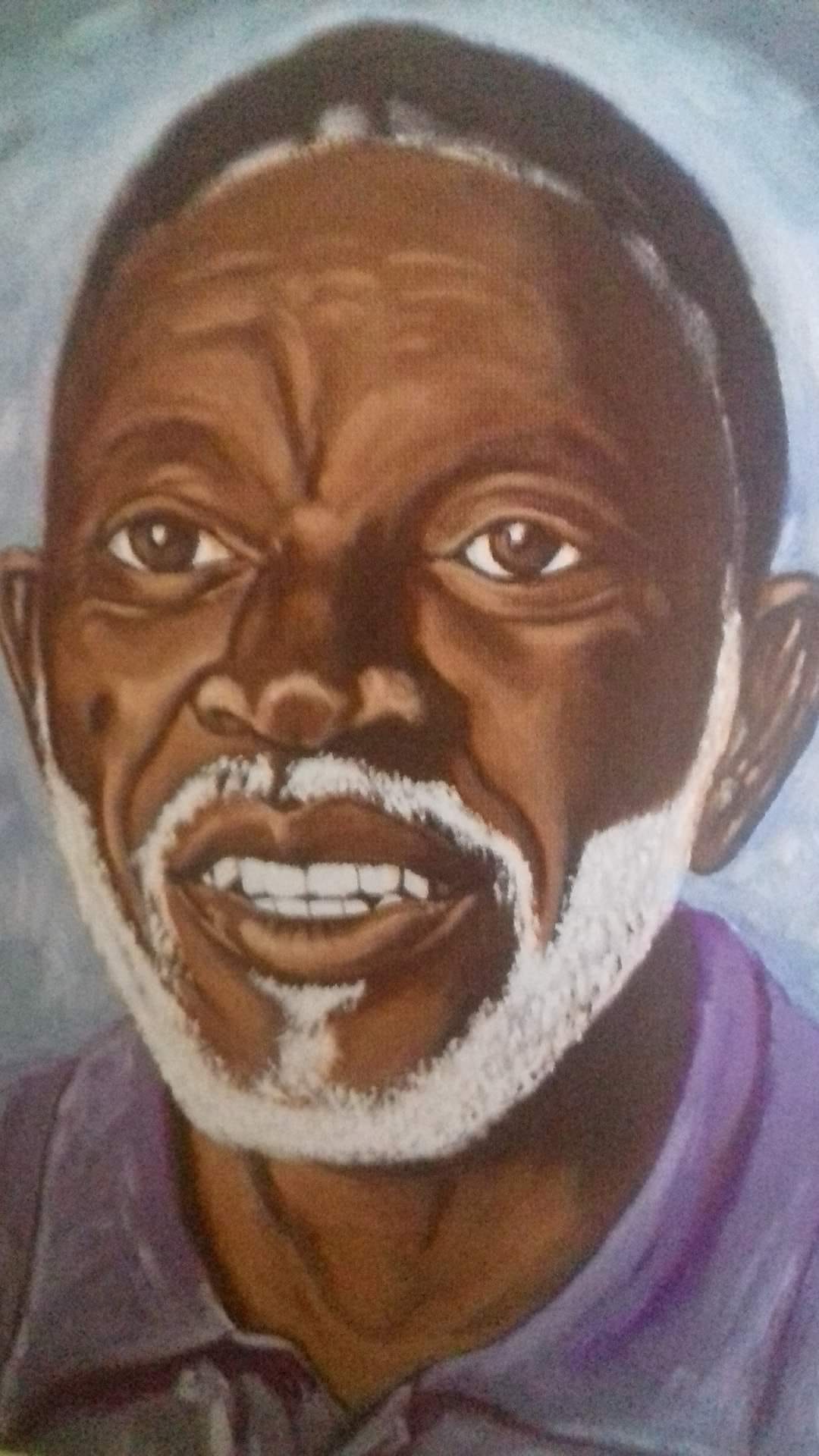
AK: At the same time the year 1976 was a crucial one in the country’s political history. Aesthetics and politics have always been closely intertwined in South Africa. How does your music reflect this synthesis?
DL: At that time Black Consciousness was the movement that really drove us to understand ourselves and know who we are, and obviously the influence of people like Dashiki who carried the flag at that time, and you couldn’t escape it, when you were at school you had to join something that had to do with protest and stuff. We were sharing books that were banned in the country. Steve Biko’s I Write What I Like we all read at school, the government banned it but we all had it, the whole school, we would read it and give it to another student and that in fact helped us to be what we are today because we understood ourselves and in our music this comes through. With us who come from the sixties and the seventies, especially the seventies, the height of apartheid, and the serious oppression of the eighties, if you listen to the music that we did, because the lyrics were banned and people thought we couldn’t write lyrics so we subjected ourselves to write lyrics that would mean nothing, but deep down, the music that we produced was protest music. It was music that would keep us hoping. And we did it in the eighties, the lyrics would be disguised and the people in the township would understand it. Today you would describe it as coded lyrics. But we understood what we were singing about. Take the song Meadowlands. The government thought at that time Meadowlands is such a nice song. It was a protest song! About people refusing to go to Meadowlands.
AK: Obviously with the release from prison of Madiba in February 1990 there is a radical break in the political and cultural landscape. How does kwaito reflect that new kind of political arena?
DL: We had to reflect the new politics. There was no protest against the government, that was the challenge of kwaito when we started. I remember the first record that we did, the difficulty was, what are the words? What are the lyrics now? And we started using sampled words, just using one word and use that repeatedly.
DL: I remember when we did a song called Makwere Kwere I used that word throughout and it became so popular and then people started writing on top of that basic repetion formula and started writing words that represented the township, how people dress, how people walk, how people talk, that’s how the new language came into the music, people adopting all of the languages of the country. There are also issues like AIDS and women abuse, these are new challenges that are being brought into the music now.
AK: When I listened to the Pyramid record I had to think about the Art Ensemble Of Chicago’s phrase “ancient to the future”. I think that’s very relevant to the transition we have in South Africa now.
DL: I was introduced to the Art Ensemble of Chicago by Geoff Mphakati, as with most of the modern jazz music that I listened to, and he taught me to not discriminate. If you don’t understand something, listen to it and find out why you don’t understand it. And I think that is crucial to the new South Africa, if you don’t understand don’t break it before you understand it. The music on Pyramid was actually composed in the seventies and the eighties, it dates back to those days, but it had to reflect the new South Africa.

AK: Kwaito is the first indigenous South African music form that has a significant degree of black ownership and control in terms of independent companies, marketing and production and distribution. This seems to me to be politically significant.
DL: It is political. The other challenge when starting Kalawa was that we wanted to be totally independent. You need resources to do that. The fact that we managed to control our destiny, and the music that we played, for example we would at any time, if we felt a record was not doing well, it needs some revamping, we wouldn’t have to go to a board meeting. We would decide, this record needs injection, walk into the studio, put injection into it, next week it’s out. Three weeks later we’d find out something is happening, can we change it, we go out and change it. It’s difficult with the bureacratic major compnaies, they have been run in the same way for the past fifty years and it is clear the music industry needs something new and black musicians and black people didn’t have their own record companies in South Africa until the advent of kwaito. So we have become a signficant part of the new economy in South Africa, black owned and black controlled.
AK: To strike a necessary critical note, kwaito seems as a movement, extremely obsessed with money, whether it be in the lyrics or the look of the video clips, a clear obsession with consumerism.
DL: I think the problem of commercial music is that the kids want more money, they want to buy flashy cars, flashy clothes and stuff. Not only in South Africa but this problem is all over the world. You see we come from a period where money didn’t play much of a role. The records we released in the seventies were not earning money, in the eighties money was the last thing on our minds, it was to make great music.
But you have to realize this is business, and why should someone else make the money while you the musician are not making the money?
The new kids, the kwaito kids, realize that by the way, this is money and I think it is a necessary phase. Now they are making money they think money money money and the music suffers but I think it will taper out and level out and money and art will be equally considered, not only one aspect of it.
AK: Kwaito is omnivorous. It feeds off sounds from all over the world. Is this perhaps a metaphor for a new sensibility in South Africa, we have joined the world, are no longer isolated from it.
DL: We have come to accept globalisation. It has helped to make the new South Africa grow quicker, we became part of the global markets very quickly and the music too has reflected this. Another important thing to point out is that at Kalawa we looked back into the earlier period of South African music, the fifties, the forties, the sixties. I started doing this when I produced Hugh Masekela’s album Sixty.

DL: We started with Black To The Future which became one of his biggest records ever in South Africa, it sold 120 000 Sixty is actually much bigger than that, it’s now sitting at 180 000.
DL: My intention was to make music that meant a lot to Hugh when he was growing up. He sat in the studio here and played all the music and I chose the tracks that we would fit onto the album and it gave me an idea that if young kids heard this music they would love it, so we would re-introduce this period to a younger generation, but we wouldn’t just play it as it was in that time we would have to make it more hip, it must sound like the new South Africa, youthful, confident. And we did that. We took a track Pata Pata with Bongo Maffin, that was our first experience of this music and it became huge. We called it Makeba. The Brothers of Peace did the same thing with Mahlatini and then everyone started to follow. You have to look back and take a step forward and that’s what we’ve been doing.
AK: You used the Soweto String Quartet on the Brothers of Peace single Zabalaza.
DL: Well I introduced strings into reggae. I got a string quartet to come and perform on a record by Lucky Dube which was amazing for the time, I had never heard any reggae record with proper live strings on it or an orchestra, but I did that. It’s always important for me to come up with something different or something new. I like to use classical instruments because of my love for classical music so with Kalawa we used strings from the beginning and now we are introducing the big brass sounds and Brothers of Peace have got brass guys playing with them live. The kwaito sound is becoming much fuller now, we’re incorporating all the styles.

AK: What about the jazz exiles like Mongezi Feza, Johnny Mbizo Dyani, Dudu Pukwana, so many of whom died tragically before they had the opportunity to return home, and yet their music is not known by the new generation.
DL: I’m actually making a collection of all the exile jazz musicians and I’ll be starting to use some of their music because I think it is important that people here know that we had people who were carrying the banner of the struggle outside during the hard times. Chris McGregor was one of the guys who spent all of his time making the whole world aware of the South African situation through his jazz.
AK: In an earlier interview you said you would like to be reincarnated as the President of South Africa.
DL: I understand that the President’s job is not an easy job, people think that being a President you can just push a button and things happen, for example although the economy might be growing, at the same time the poverty in the country has reached an alarming rate. So although the black middle class is growing we are forgeting about the people on the ground. If I was President I would take drastic measures to make things work for the country. We are part of the global economy but I think the most important thing to be done in this country is to alleviate poverty, is to have running water in every household, to have sanitation, which is crucial. I would enforce free education. Adult education, they need to be educated too, you need to bring them to a certain level while at the same time concentrating on the young ones.
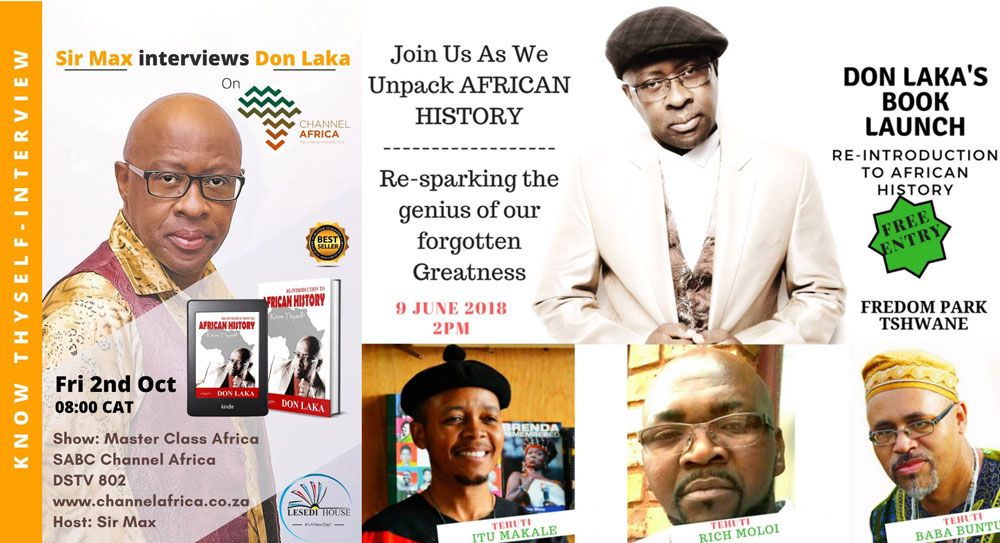
AK: What about the land question?
DL: The land issue in the whole of Africa is a problem, particularly in South Africa now and if it’s not adressed as quickly as it should be it’s going to create the situation we are facing up north. We can not wait for another ten years to try to sort this question out, it has to be done today. I think people will run out of patience with mere talking ten years down the line, so the government has to speed that up, there will never be another alternative to that.
AK: Does kwaito music answer the question, “who are we?”
DL: Not really. I don’t think it really does that. It’s the youth’s music. I’m probably the oldest kwaito producer in the country. At 45 I’m the only one of my age doing this. And as I said earlier the reason I’m doing this is because of what Geoff Mphakati taught me that every music is important. I have worked with classical musicians like Sibongile Kumalo, I’ll do a jazz record like my solo record, and I’ll produce the Soweto String Quartet, and I’m going to work with Bongo Maffin and Mafikizolo, any of them. I think the kwaito thing is a trend, and a commerical trend, that will reflect what the youth is doing in the township.
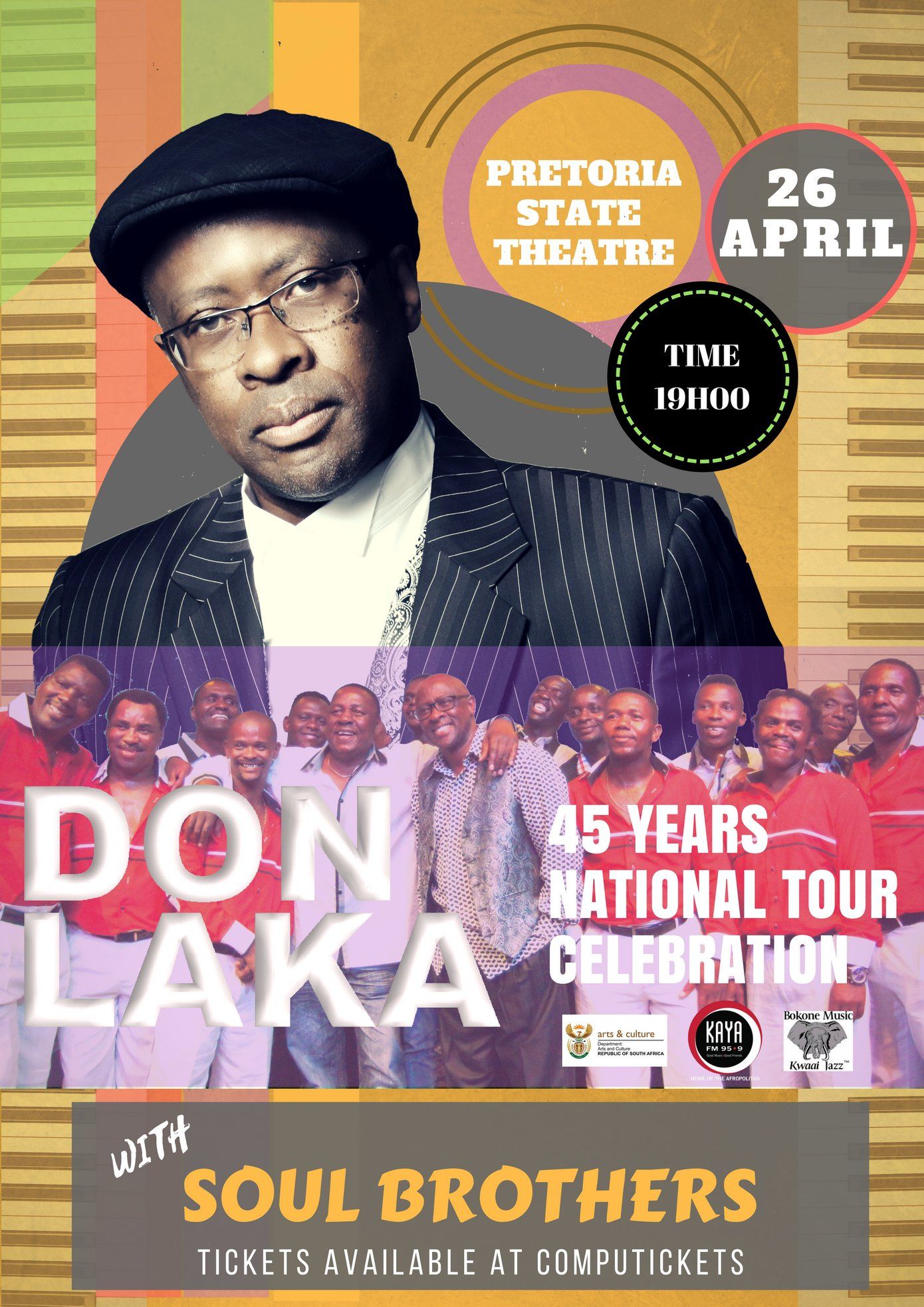
AK: You said that music is one of the few things that has rejuvenated South Africa. In which way has kwaito rejuvenated South Africa?
DL: From the political aspect, from the moral aspect, music has always been highly regarded in South Africa and used for many social functions. When we are happy people start ululating and song is just the first expression of emotions in South Africa. People will be so happy and tears will start running down their cheeks and they will start singing a song. It has always been so important even in the protest time, that groups like Blondie Makhena’s youth band kept the struggle music up there, and Stimela, you know there are so many groups to name. And now we are relaxed and the music has changed, it’s different, now we see thousands of people going to jazz concerts.
AK: But a lot of people are critical of kwaito because it has an attitude to women that they don’t perceive as correct, or else it encourages drug use.
DL: You see what commercial music will do it will always focus on certain issues and the media too will focus on certain issues that will make headlines. There is a lot of good kwaito out there that does not dis women and you don’t get much written about that. I remember a good quote from Paul McCartney of the Beatles when he was asked about the drug issue that one BBC journalist asked him, “we have found out that you guys are using drugs, wouldn’t it affect the youth of the world who are following you, don’t you think you are being irresponsible?” and McCartney’s answer was, “who is irresponsible between you and I, because I have tried to hide it, but you want to put it on national tv and tell the youth about it, so who is being irresponsible?” So in kwaito too you will pick up on things that are controversial and the media will blow them out of proportion. It is true because of freedom of speech in South Africa that you can expect such things to happen.
AK: What’s the future of kwaito?
DL: I think it’s evolving now and I’m happy that it’s evolving the way it is going. Because kwaito first started as rap music but now a lot of people are singing. I think this trend first started with Boom Shaka and we did a lot of singing with Bongo Maffin who have become an international group, they regularly perform in the United States and Europe, and Mafikizolo will go the same way.


